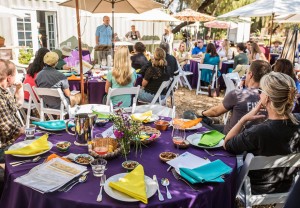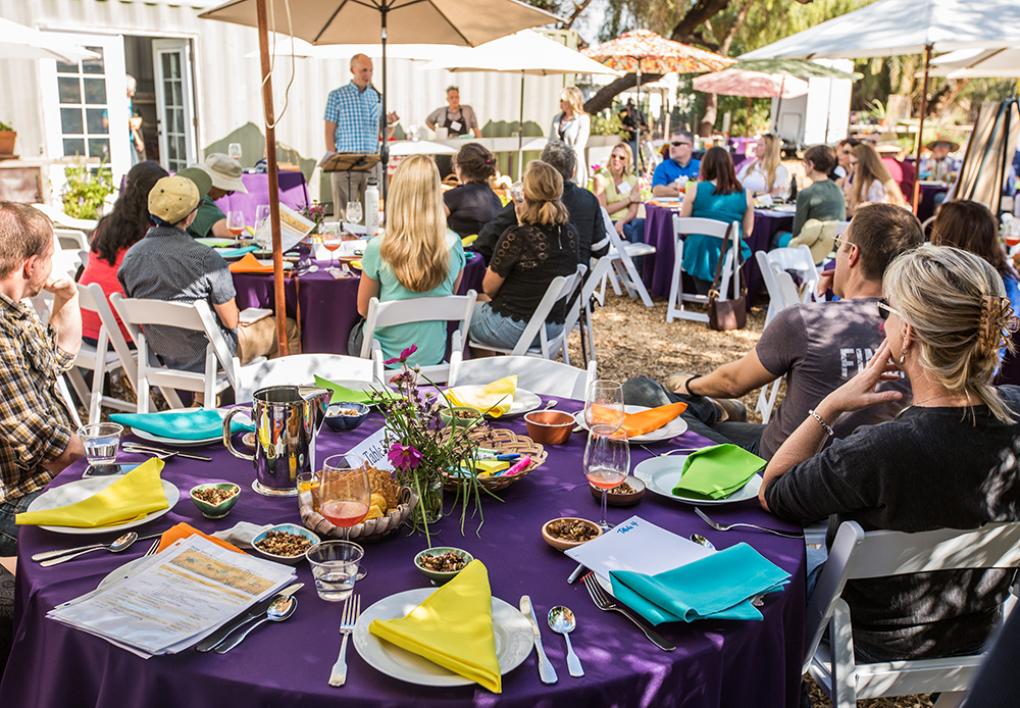
On a sunny day in November 2016 around one hundred food professionals gathered at an organic farm on South Mountain in Phoenix AZ to discuss the future of food. They gathered to think about “Dinner 2040,” and to imagine better pathways to a food system that we could call sustainable and just.
I joined the event to share a few thoughts about the history of food. If most people were thinking 25 years into the future, I was going to provide some context by looking 25 or 50 years into the past.
Dinner 2040 is a project of HfE Observatories, and it is led by Dr. Joan McGregor and other scholars at Arizona State University. It aims to develop a template for thinking about the values that shape food systems in a particular place, and to design “future of food” workshops and dinners that can be used in communities across North America. The five values it promotes for future food systems are:
- Historical/Cultural/Place-Based Practices
- Sustaining Environmental Integrity
- Health and Nutrition
- Food Justice and Social Justice
- Food Sovereignty
The workshops are meant to be live and participatory events that include a range of stakeholders, some local expertise, and of course, good food! It follows a design charrette where all of these voices come together to envision a sustainable food system and then plan the optimal pathways for attaining it. The following video by ASU Now sums up the November event.
Dinner2040: The Future of Food in Maricopa County from ASU Now on Vimeo.
For my part, I focussed on the centrality of agriculture in human history, and specifically on its changes in the modern world. Fifty years ago world agriculture was in the middle of the Green Revolution, and the advance in crop and animal technologies was one reason that people were able to eat more for less. The proportion of disposable income that families spent on food decreased dramatically in the postwar period. However, North American farmers were an aging and disappearing group. Many farms felt they had to go big or go home. Agricultural officials encouraged farmers to plow “from hedgerow to hedgerow” and indeed, to remove the hedgerows entirely. Naturally, these trends were nuanced. Thirty years ago conservation programs began to remove and protect millions of acres of marginal farmland. And twenty-five years ago, organic agriculture certification was codified at the national level in the US.
I encouraged participants to think about how we can maintain the successes of agriculture that we enjoy every day, and yet recognize that our food system is a human system and it is prone to deep inequalities and ecological disturbances. I argued that there are many environmental and business advantages to new technologies like precision agriculture and to intensive management of our farmland. But we need a diversity of humans, and I would include humanists, involved at every level. Our connection to place, to people, and to animals is one of the benefits we risk losing with Big Ag. The lessons of history warn us that we need to think carefully about the pathways we set out on before we do so. And ultimately, our one aim must be human
It was a privilege to visit Maya’s farm and to get to hear so many voices from the community, from the university, and from the food industry. It was also great to enjoy the fruits of several local chefs as they served us a stream of delicious courses in the shade of the mesquite trees.
I should add that students from my Sustainability seminar, “The History and the Future of the Anthropocene,” kindly contributed their voices and their labour to the event, serving tables, taking notes, and cleaning up afterward. Hearing their perspectives in our following class was every bit as illuminating as listening to the regular presenters.

